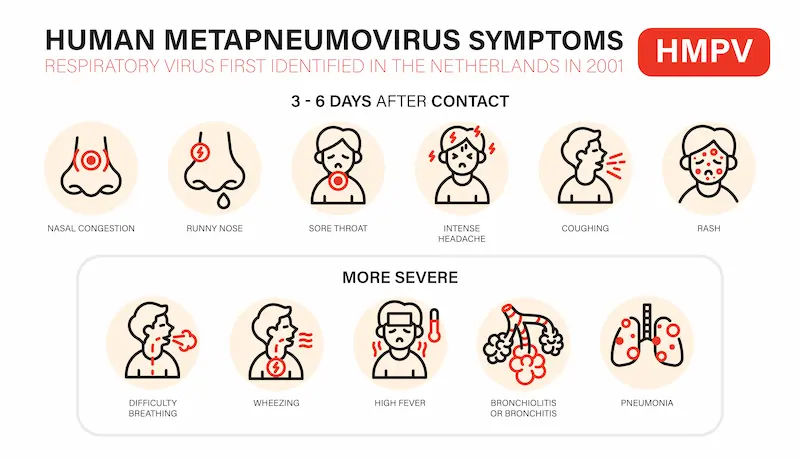Pregnancy Bloating: Causes, Relief Tips, and When to Worry
Pregnancy bloating is common but uncomfortable. Learn the causes—from hormones to a growing uterus—plus safe relief tips, diet changes, lifestyle tweaks, and when bloating signals a serious concern.

_0.webp?tr=q-80,f-webp,w-350,dpr-2,c-at_max 700w)
That uncomfortably full, tight feeling in your abdomen—is it the start of a baby bump, or are you just incredibly bloated? For most expecting mothers, pregnancy bloating is one of the earliest and most persistent symptoms, often appearing even before a missed period. While it's a completely normal part of the journey, it can be surprisingly uncomfortable and even painful. This comprehensive guide dives deep into the hormonal and physical reasons behind that swollen feeling. We'll equip you with practical, doctor-approved prevention tips and relief strategies, from smart dietary choices to simple lifestyle tweaks. More importantly, we'll help you understand when bloating might be a sign of something more serious, ensuring you and your baby stay healthy and comfortable throughout your pregnancy.
Why Does Pregnancy Make You So Bloated? The Main Culprits
Pregnancy bloating isn't just in your head; it's a physiological process driven by powerful forces within your body. Understanding these causes is the first step toward managing them effectively. The discomfort primarily stems from a combination of hormonal shifts and physical changes that slow down your digestive system, leading to a buildup of gas and stool.
The Hormone Progesterone: Your Digestive System's Slow-Down
The primary driver of early pregnancy bloating is the dramatic surge in the hormone progesterone. This hormone is crucial for maintaining a healthy pregnancy, as it relaxes the smooth muscles throughout your body. This includes the muscles in your gastrointestinal tract. When these muscles relax, the wave-like contractions (peristalsis) that normally move food smoothly through your intestines slow down significantly. This delayed transit gives food more time to ferment in your gut, which produces excess gas and leads to that characteristic bloated, gassy feeling. This process is also a key contributor to pregnancy constipation, which exacerbates bloating.
Your Growing Uterus: Crowding Your Organs
As your pregnancy progresses into the second and third trimester, a new player enters the scene: your expanding uterus. To accommodate your growing baby, the uterus enlarges and begins to occupy more space in your abdominal cavity. This puts direct pressure on your intestines and stomach, further compressing them and hindering their ability to function efficiently. This physical crowding can trap gas and make you feel full after even small meals, a condition often confused with severe bloating during pregnancy.
Constipation: A Common Companion to Bloating
Bloating and constipation are a classic vicious cycle in pregnancy. The slowed digestion caused by progesterone makes it easier to become constipated. When stool remains in the colon for an extended period, the gut bacteria have more time to ferment it, producing even more gas and leading to increased bloating and discomfort. This is why strategies to alleviate pregnancy constipation are often the same ones that reduce bloating.
Effective Strategies to Prevent and Reduce Bloating
While you can't stop your body from producing progesterone, you can take proactive steps to manage its effects on your digestive system. A multi-faceted approach focusing on diet and lifestyle is your best defense.
Dietary Adjustments for a Happier Gut
What you eat has a direct impact on how to relieve gas pain during pregnancy. The goal isn't a restrictive diet but a strategic one.
Foods to Embrace (and Why)
- High-Fiber Foods: Soluble fiber (found in oats, apples, beans, and carrots) absorbs water and helps form soft, easy-to-pass stool, combating constipation. Insoluble fiber (found in wheat bran, vegetables, and whole grains) adds bulk and keeps things moving.
- Water-Rich Foods: Cucumbers, watermelon, celery, and strawberries contribute to your overall fluid intake, which is essential for fiber to work properly.
- Potassium-Rich Foods: Bananas, avocados, and sweet potatoes can help counteract water retention, a minor contributor to bloating, by balancing sodium levels.
Foods to Limit or Avoid
- Gas-Producing Vegetables: Broccoli, cauliflower, cabbage, and Brussels sprouts are healthy but notorious for causing gas. You don't need to eliminate them; try cooking them thoroughly or eating smaller portions.
- Fried and Fatty Foods: These take much longer to digest, keeping your sluggish system occupied for longer and increasing the chance of discomfort.
- Carbonated Drinks: The bubbles are literal gas (carbon dioxide) that you are swallowing directly into your digestive tract.
- Artificial Sweeteners: Sorbitol and other sugar alcohols are poorly digested and can ferment in the gut, leading to gas and bloating.
Lifestyle and Habit Changes
The Power of Movement and Posture
Gentle, regular exercise like walking or prenatal yoga is one of the most effective remedies. Physical activity helps stimulate the natural contractions of your intestines, pushing gas and stool along. Even a 15-minute walk after a meal can make a significant difference. Also, pay attention to your posture. Slouching compresses your abdominal area, while sitting or standing up straight gives your organs more room.
Hydration and Eating Habits
Drinking plenty of water is non-negotiable. It softens stool and helps fiber do its job, preventing the constipation that worsens bloating. Aim for 8-10 glasses a day. Furthermore, change how you eat. Instead of three large meals, opt for five or six smaller meals throughout the day. This prevents overloading your already slow digestive system. Eat slowly and chew thoroughly to avoid swallowing excess air, which contributes to gas.
When to Contact Your Doctor: Bloating and Serious Concerns
While bloating is normal, it's crucial to recognize when it might be a red flag. Contact your healthcare provider immediately if your bloating is accompanied by:
- Severe or persistent abdominal pain that doesn't resolve with gas relief or a bowel movement.
- Significant swelling in your hands, face, or around your eyes, especially if it comes on suddenly.
- A severe headache, vision changes (like seeing spots), or upper right abdominal pain. These can be symptoms of preeclampsia.
- Blood in your stool or an inability to pass stool for several days.
- Bloating that is sudden, extreme, and painful.
Trust your instincts. If something feels wrong, it's always best to get it checked out.
Conclusion
Pregnancy bloating is an incredibly common, yet undeniably frustrating, part of the journey to motherhood. While it may feel relentless at times, it's a powerful sign of the profound changes your body is undergoing to nurture your growing baby. By understanding the roles of progesterone and your expanding uterus, you can move from feeling at the mercy of your digestion to being in control. The prevention tips outlined here—strategic eating, mindful hydration, and gentle movement—are your toolkit for managing discomfort. Remember, this phase is temporary. Listen to your body, implement these changes gradually, and don't hesitate to reach out to your healthcare provider with any concerns. You’ve got this.
Consult a Specialist for Personalised Advice
Consult a Specialist for Personalised Advice

Dr Suseela
General Physician
5 Years • MBBS
Bengaluru
Apollo Medical Center, Marathahalli, Bengaluru

Dr. Rajib Ghose
General Physician/ Internal Medicine Specialist
25 Years • MBBS
East Midnapore
VIVEKANANDA SEBA SADAN, East Midnapore

Dr Aswathy D C
General Practitioner
6 Years • MBBS
Bangalore
Apollo Clinic Bellandur, Bangalore

Dr. Vivek D
General Physician
4 Years • MBBS
Bengaluru
PRESTIGE SHANTHINIKETAN - SOCIETY CLINIC, Bengaluru

Dr. Sanjiban Saha
General Practitioner
3 Years • MBBS
Avenue
Wellness Point, Avenue
More articles from General Medical Consultation
Frequently Asked Questions
Can bloating be a sign of pregnancy before a missed period?
Yes, absolutely. The surge in progesterone happens immediately after implantation, so early pregnancy bloating before a missed period is a very common symptom, often accompanied by gas and mild cramping.
How can I tell if it's bloating or my baby showing?
Early on, it's almost always bloating. A true baby bump is typically firmer to the touch and located low in the abdomen, below the belly button. Bloating feels softer, comes and goes (often worse at night), and can make your entire abdomen feel hard and extended.
What can I take for gas pain during pregnancy?
Always consult your doctor first. Simethicone (found in brands like Gas-X) is generally considered safe during pregnancy as it works locally in the gut and isn't absorbed into the bloodstream. However, your provider can recommend the best and safest option for you.
Why is my bloating worse at night?
Gas tends to build up over the course of the day. After all your meals and snacks, your slowed digestive system has had hours to produce gas, which can lead to peak discomfort and severe bloating during pregnancy in the evening.
Does pregnancy bloating get better in the second trimester?
For many, yes. As your body adjusts to the hormonal changes, digestive issues can ease up. However, for others, the physical pressure of the growing uterus becomes the new cause of bloating and indigestion, so symptoms may persist but for a different reason.




